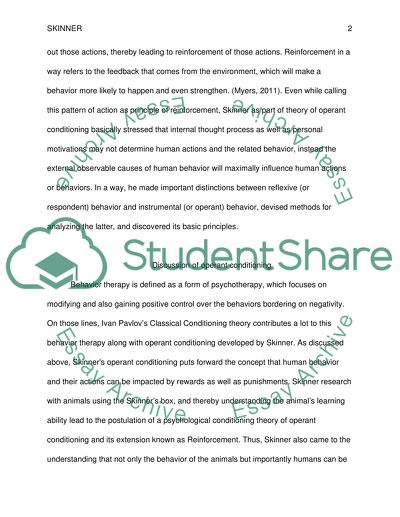Cite this document
(“B.f skinner operant conditioning Essay Example | Topics and Well Written Essays - 1250 words”, n.d.)
Retrieved from https://studentshare.org/psychology/1491083-bf-skinner-operant-conditioning
Retrieved from https://studentshare.org/psychology/1491083-bf-skinner-operant-conditioning
(B.f Skinner Operant Conditioning Essay Example | Topics and Well Written Essays - 1250 Words)
https://studentshare.org/psychology/1491083-bf-skinner-operant-conditioning.
https://studentshare.org/psychology/1491083-bf-skinner-operant-conditioning.
“B.f Skinner Operant Conditioning Essay Example | Topics and Well Written Essays - 1250 Words”, n.d. https://studentshare.org/psychology/1491083-bf-skinner-operant-conditioning.


